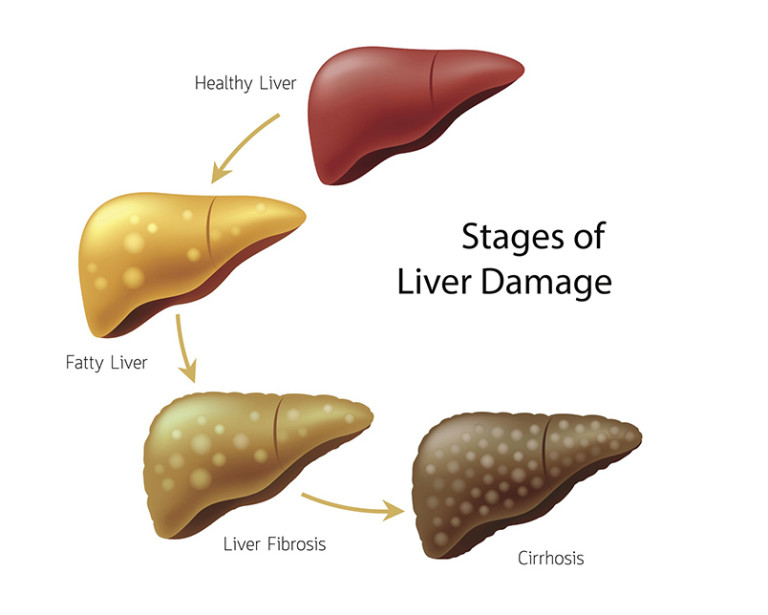
It turns out that a stressed liver causes invasive stress on other organs, including the brain.. T
his means that we cannot safely ignore fatty liver disease which is super common. just where do you think you are getting that pot belly from?
so far the best strategy appears to be high doses of vitamin C to induce vitamin C saturation and also intermittent fasting to collapse the total weekly food intake to just the seven days. A good diet should at least then stabilize any problem.
7
Up to 13% of Dementia Cases May Be a Misdiagnosed Treatable Condition
17 July 2024
Healthy brains require healthy livers.
https://www.sciencealert.com/up-to-13-of-dementia-cases-may-be-a-misdiagnosed-treatable-condition?
As the global population ages, more of us face frightening cognitive decline, personally or in our loved ones. There are over 10 million new cases of dementia globally each year.
But a new study suggests up to 13 percent of people diagnosed with dementia in the US may have a misdiagnosis and are instead left struggling with a condition that can be treated.
"Health care providers [must be] made aware of this potential overlap between dementia and hepatic encephalopathy, which is treatable," states Virginia Commonwealth University hepatologist Jasmohan Bajaj.
Hepatic encephalopathy – cognitive impairment caused by liver failure – impacts more than 40 percent of patients with advanced liver disease (cirrhosis). The brain impairments it causes are hard to distinguish from dementia.
Our livers regulate the levels of most chemicals in our bodies, from filtering them from the blood to aiding with digestion.
Aside from the well-known liver-damaging effects of alcohol, other risks to the liver include the hepatitis virus, high cholesterol, obesity and diabetes, stress, and aging. But if caught early enough and with the right treatment, damage to our livers can be reversed.
Much of this can be mitigated through changes in diet and behavior, and there are even more potential drug treatments on the horizon as well.
In fact, treatment of hepatic encephalopathy has resolved cognitive impairments in at least two patients who had been diagnosed with dementia.
"He is a different person!" the wife of one of the patients notes, after his memory loss, falls, tremors, and hallucinations were all resolved.
A recent study in mice suggests that even the impacts of aging on the liver may be reversible if caught early enough.
"We've shown that aging exacerbates non-alcoholic liver disease… and by reducing this impact, we can reverse the damage," explains Duke University hepatologist Anna Mae. "You are never too old to get better."
So earlier this year, Bajaj and colleagues reviewed the medical records of 177,422 US veterans diagnosed with dementia between 2009 and 2019.
None of them had been diagnosed with liver disease, but the team found over 10 percent had high fibrosis 4 (FIB-4) scores, an index to measure liver scarring, meaning they were very likely to have cirrhosis.

Cirrhosis is the result of persistent liver damage, where healthy tissue has been gradually replaced with scar tissue. (Kuo Du et al., Nature Aging, 2024)
In their new study, Virginia Commonwealth University biostatistician Scott Silvey, Bajaj, and colleagues repeated this review with 68,807 medical records of patients from a national database who aren't veterans, to see if their earlier results reflected the general US population.
To their surprise, even more patients with high FIB-4 scores were found in this population – almost 13 percent.
"The prevalences and determinants of a high FIB-4 are striking, including a greater proportion of patients who were not white in the high FIB-4 group," explain Silvey and team.
"While we did not study the specific factors behind these disparities, a lack of access to therapy or medical care in both dementia care and comorbidity care could contribute."
Once our livers start to malfunction, it stresses other tissues in our bodies, including kidneys, pancreas, and heart, as well as our brains. So it makes sense to prioritize our liver health.
"This important link between dementia and liver health emphasizes the importance of screening patients for potentially treatable contributors to cognitive decline," concludes Bajaj.
No comments:
Post a Comment